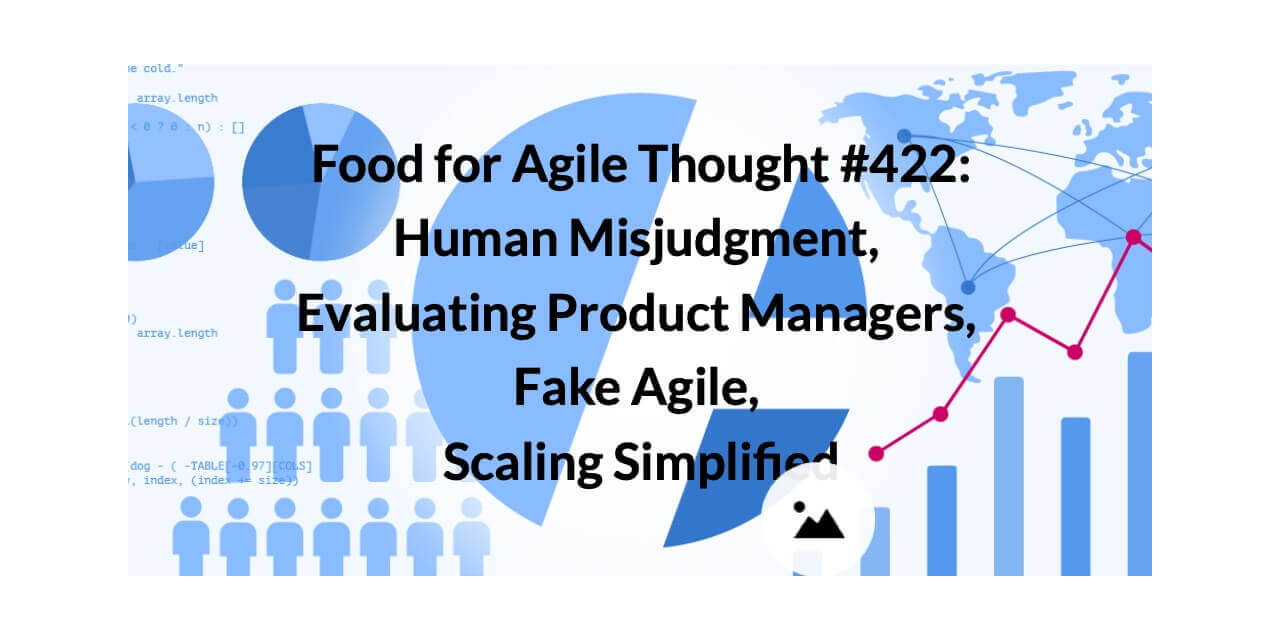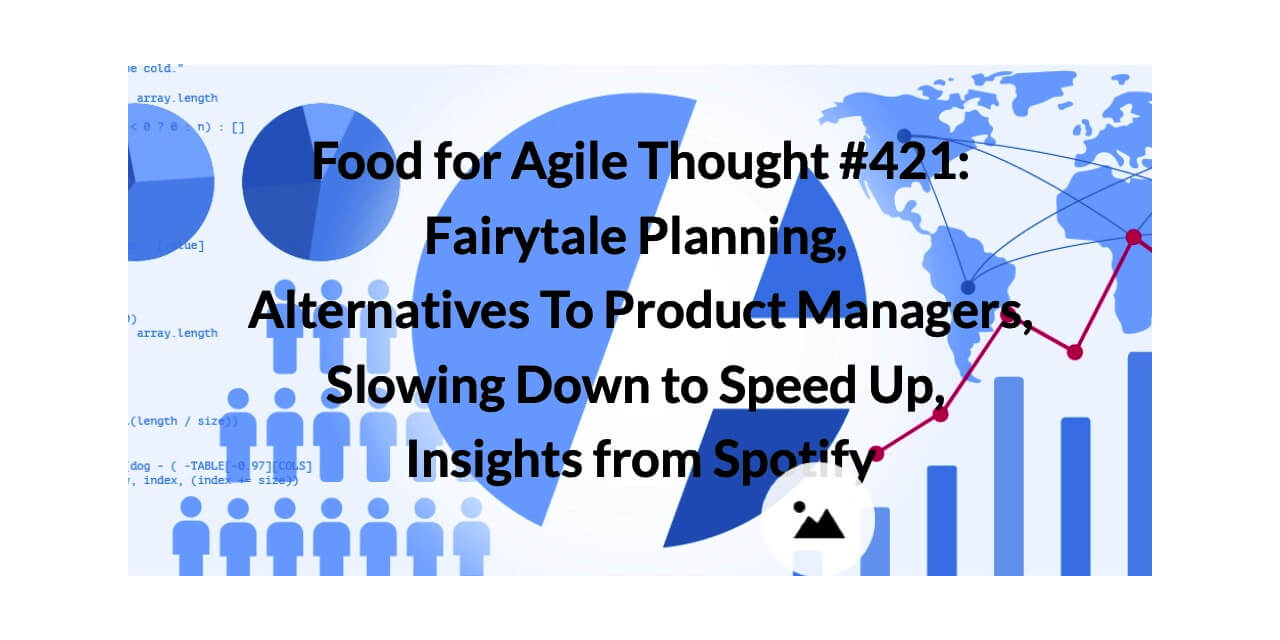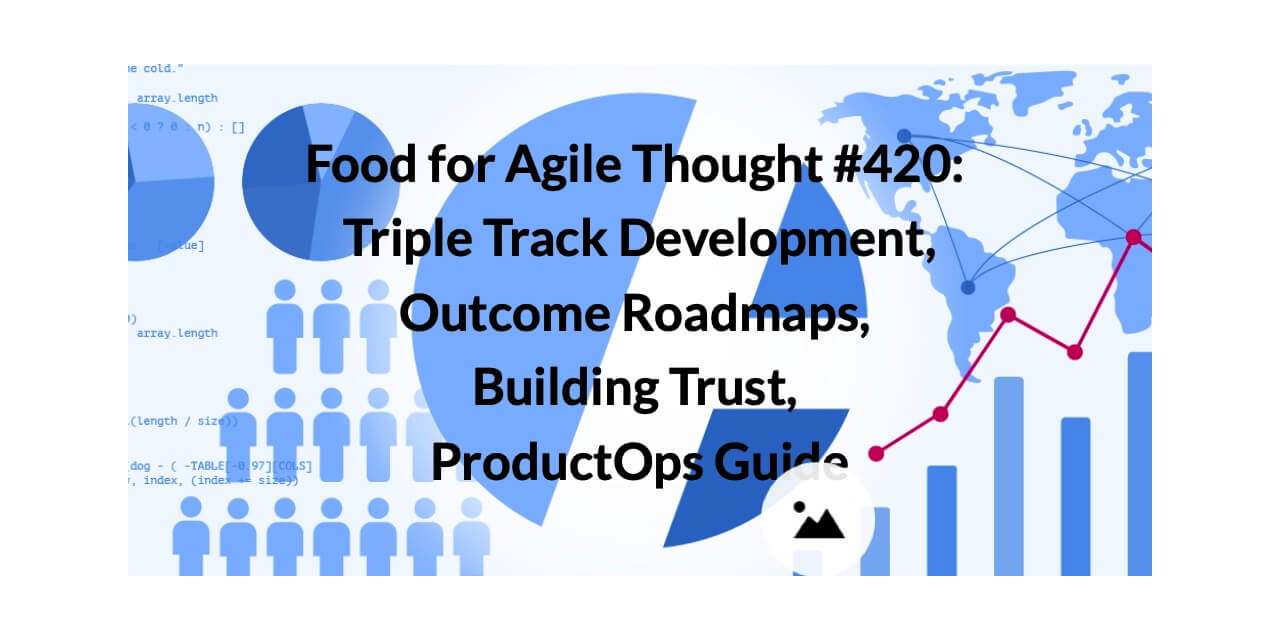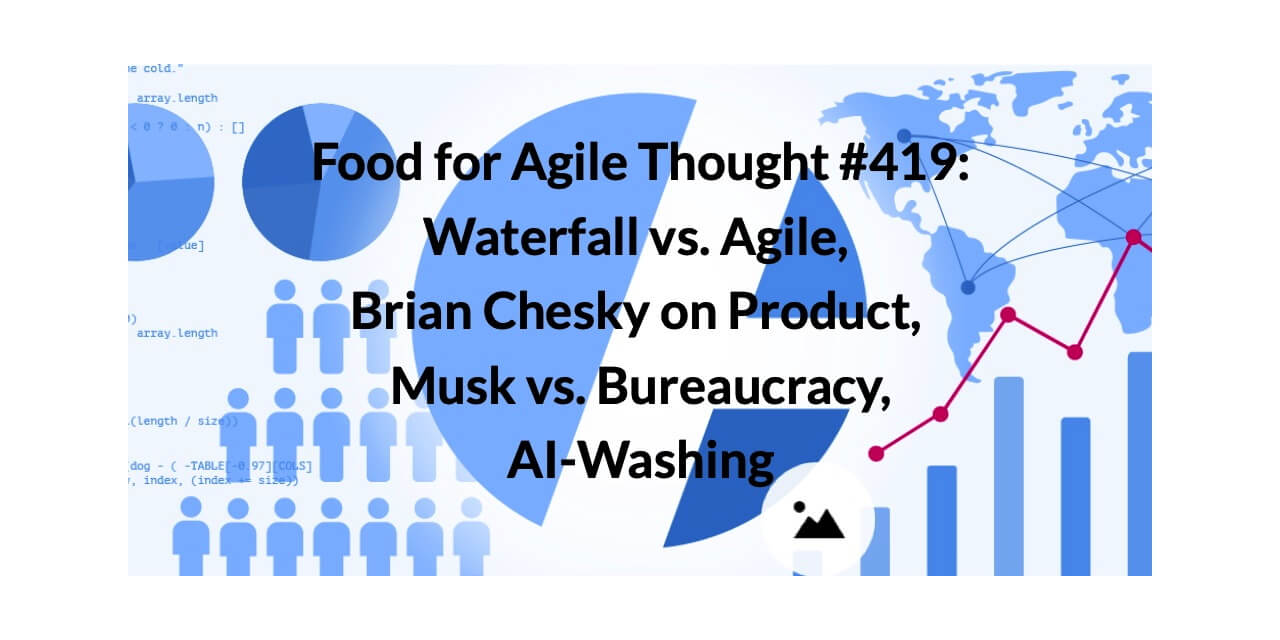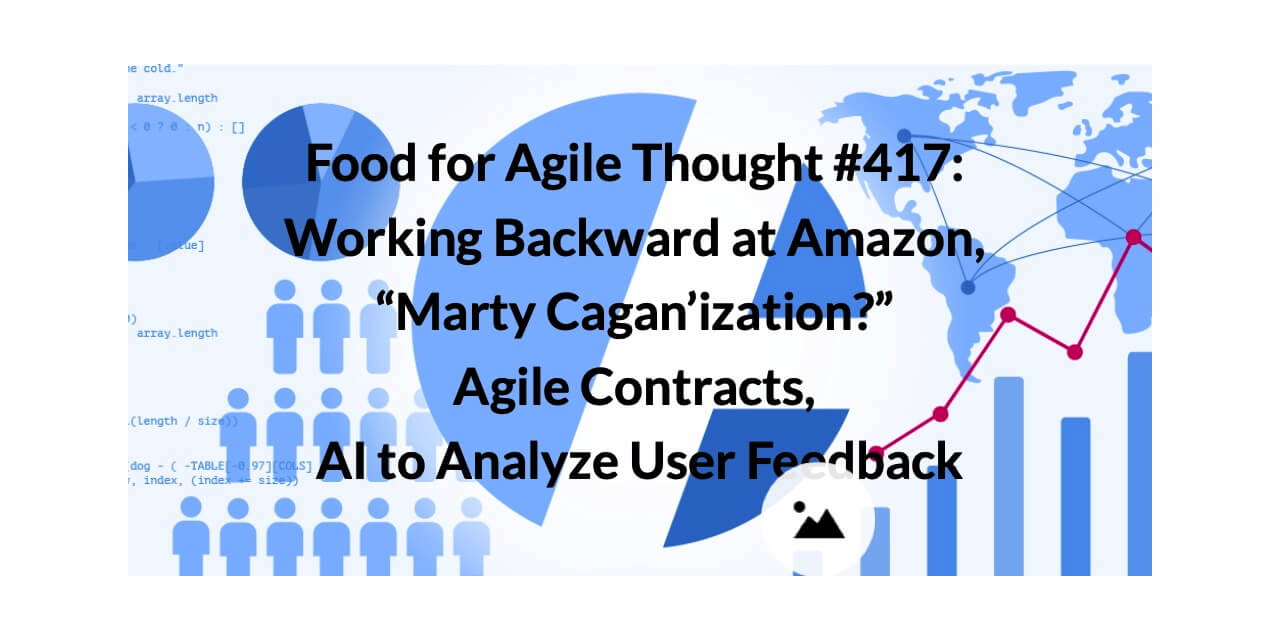TL; DR: Human Misjudgment — Food for Agile Thought #422
Welcome to the 422nd edition of the Food for Agile Thought newsletter, shared with 49,901 peers. This week, Farnam Street highlights the revised edition of Charlie Munger’s “The Psychology of Human Misjudgment,” Nigel Thurlow critiques “Fake Agile,” while John Cutler analyzes Brian Chesky’s leadership insights. Also, Marco Nink identifies key traits of agile companies, and we examine how to miss Sprint Goals consistently.
Then, Jeff Patton offers a framework for assessing Product Managers across seven vital areas. Moreover, Roman Pichler discusses the role of a validated product strategy and the Opportunity Solution Tree in product discovery, and Richard Mironov critiques annual planning, advocating for continuous, inclusive corporate and product strategy.
Lastly, Troy Lightfoot and Andy Cleff discuss with Prateek Singh and Dan Vacanti their book “Scaling Simplified,” focusing on Agile scaling through flow. Mark Ridley investigates Bruce Tuckman’s “Stages of Group Development,” its evolution, and its current relevance. Additionally, Casey Rosengren addresses startup decision-making, underscoring the impact of fear and uncertainty, and Dr. Stuart Woolley critiques the gap between management practices and their effectiveness in software engineering.
